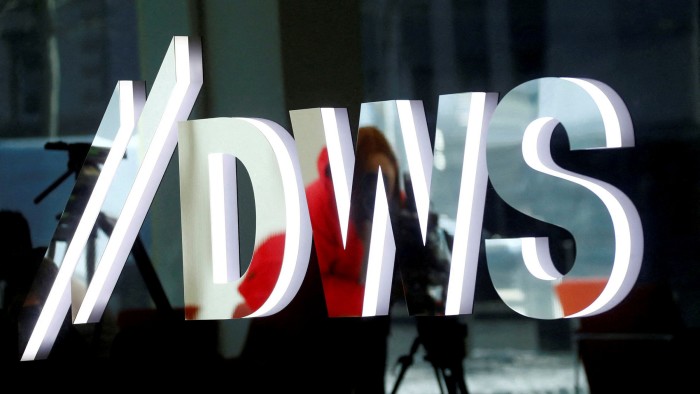DWS: greenwash row highlights ESG’s own ethical conflicts

Roula Khalaf, Editor of the FT, selects her favourite stories in this weekly newsletter.
A police raid on offices of DWS and the subsequent resignation of boss Asoka Wöhrmann are the latest fallout for the German asset manager battling allegations of greenwashing. The controversy illustrates the mayhem that ensues when politics, business and fund management clash in the disputed territory of ESG investment.
The marketing acronym unhelpfully elides environmental, social and governance goals which are frequently unrelated or in conflict. A tussle over the credibility of ESG has been highlighted by the suspension of Stuart Kirk, HSBC’s sceptical head of responsible investment and a former editor of this column.
At best, DWS has played fast and loose with definitions. In its latest annual report, published in March, the business reported €115bn in “ESG assets” for 2021; a year earlier it stated that €459bn in assets were “ESG integrated”. It notes that comparison is not feasible.
The row has given BaFin the chance to flex its muscle. The German regulator, asleep at the wheel over the Wirecard debacle, was subsequently handed beefed up powers.
For regulators and hundreds of newly-minted ESG rating agencies the issue is standardisation. Regulators are focusing on transparency; the SEC last week called for more disclosure. Watchdogs are also alert to misrepresentation.
Some criteria lend themselves to a binary yes/no tick list, such as Scope 1 and 2 emissions. But even those are hardly reliable. Pledges to cut emissions by a future date may be forgotten.
Research demonstrates how subjective ESG judgments are. One study compared how six ESG rating providers scored 400 companies. It found the correlation of MSCI scores with those of S&P and Sustainalytics were below 50 per cent. By comparison, the big three credit rating agencies have correlations of 94 to 96 per cent on long-term debt ratings.
Start questioning the logic of ESG categories and it is hard to stop. Is a company that requires employees to vaccinate against coronavirus protecting their health or infringing their freedom? Does an electric vehicle become immoral if you charge it with coal-generated volts?
Undaunted, campaigners are tagging on arguable new categories. “EESG” brings in employees; environment stretches to marine life, water scarcity and biodiversity.
We have been here before with the subprime failures of rating agencies and “best buy” recommendations for Neil Woodford funds. The conclusion for investors is this: in ethics, as in everything else, do your own due diligence and trust your own judgment.
The Lex team is interested in hearing more from readers. Please tell us what you think of the current debate over ESG in the comments section below
Comments